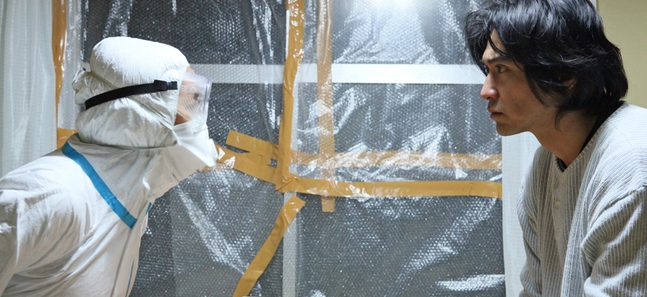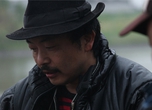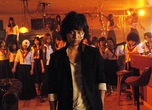The Land of Hope (Kibo no Kuni)
Sion Sono’s radiation drama is more TV movie than taboo buster

© The Land of Hope Film Partners
Posted: Sat Sep 08 2012
Director: Sion Sono
Starring: Isao Natsuyagi, Naoko Otani, Jun Murakami
Time Out rating: 
Sion Sono was one of the first responders to March 11. Already at work on his adaptation of Minoru Furuya's Himizu when the disaster occurred, the director promptly relocated the production to Tohoku, using the scenes of devastation as a fever-dream counterpoint to the main story. It wasn't strictly a film about the disaster, but it was unquestionably of it, and managed to articulate that mad whirl of emotion that gripped the country last year with surprising power.
The Land of Hope is Sono's second post-quake film, this time dealing with the aftermath of the Fukushima nuclear meltdown, but it's an oddly bloodless work in comparison. Drawing on conversations he had with locals while shooting Himizu, the director seems to have aimed for a more serious, respectful picture. Gone are the violence and hysteria that are usually such constants in his work, replaced by the vocabulary of made-for-TV movies: static shots, clumsy sound effects and a ponderous script that constantly jostles you with its awfulness.
When a major earthquake triggers a tsunami and nuclear meltdown, elderly dairy farmer Yasuhiko (Isao Natsuyagi) and wife Chieko (Naoko Otani) – the latter reduced to a childlike state by dementia – find themselves on the edge of the exclusion zone. (Quite literally, in fact: the fence is staked right across their yard.) They decide to stay, but son Yoichi (Jun Murakami) leaves with Izumi (Megumi Kagurazaka), his pregnant and increasingly radiation-paranoid wife. Meanwhile, their neighbours are moved to an evacuation centre, with son Mitsuru (Yutaka Shimizu) making periodic trips to the tsunami-hit coast to help girlfriend Yoko (Hikari Kajiwara) find her missing parents.
Yet this isn't Fukushima: Sono sets the action in a fictional region of Japan in the near future, allowing his characters to talk about the March 11 disaster without ever pausing to marvel at how precisely their own predicament resembles it. It's an awkward fudge, badly handled – if the director had to make this change for legal reasons, surely he could've concocted a more elegant solution? But that's far from the only problem in a film that's forever slipping deeper into absurdity: Izumi starts wearing a radiation suit on her trips to the doctor, Mitsuru and Yoko encounter a pair of ghost children – ghost children! – searching the rubble, and Chieko wanders off into the exclusion zone, pursued by a frantic Yasuhiko and the strains of Mahler's Symphony No. 10.
What a stodgy film this is, its veins clogged with sentiment and good intentions. Perhaps Sono hoped to pay tribute to the very real suffering of people in Fukushima, but instead he's trivialised it with clichés and clumsy didacticism. Coming from a less interesting director, The Land of Hope might have been easier to shrug off. From Sono, it feels like a colossal failure.
The Land of Hope opens nationwide on October 20
Tweets
- About Us |
- Work for Time Out |
- Send us info |
- Advertising |
- Mobile edition |
- Terms & Conditions |
- Privacy policy |
- Contact Us
Copyright © 2014 Time Out Tokyo














Add your comment